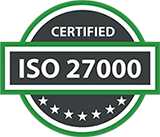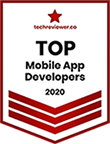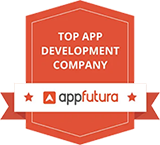Hire iPhone App Developers
Transparent reporting with real-time progress updates
Full ownership rights & strict NDA compliance
Seamless onboarding with no setup delays
15-day replacement guarantee for satisfaction
Flexible engagement: Remote or Onsite
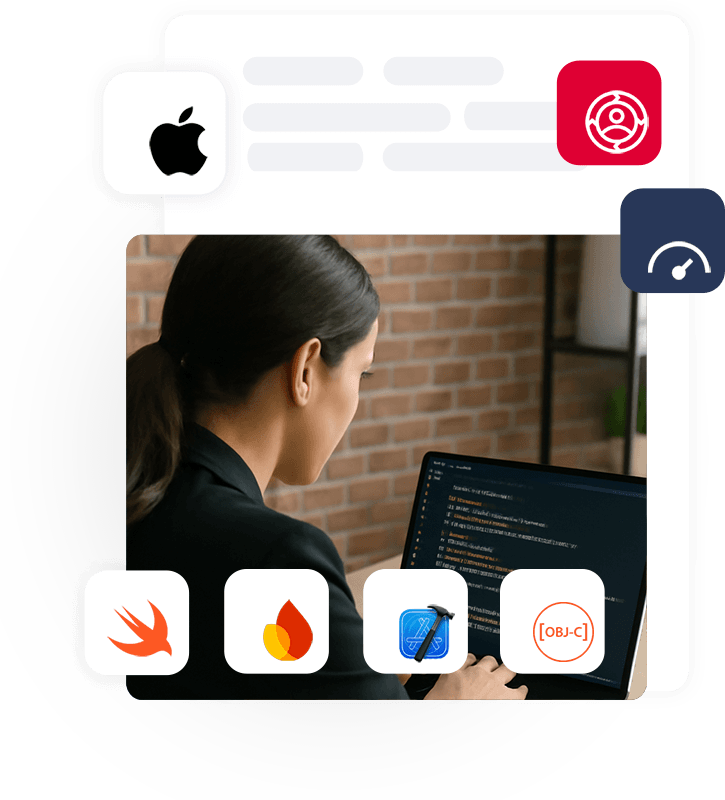
Hire iPhone App Developers, Perfectly Aligned with Your Business Objectives & Timely Deliverables
Creating seamless iOS experiences with the latest technology necessitates a deep understanding of Apple's ecosystem and a commitment to leveraging latest tools.
This involves integrating advancements like SwiftUI, ARKit, and Core ML to build applications that are not only functional but also intuitive and engaging for users.
Designing for iOS means aligning with Apple’s ecosystem, adhering to strict App Store guidelines, and optimizing for a limited but powerful range of devices.
It requires deep platform knowledge, UI/UX know-how, and technical rigor to deliver experiences that feel native, polished, and future-ready solution.
Hire Custom iPhone App Development Talent for Your Unique Business Needs
iPhone App UI/UX Design
Captivate users with visually stunning, intuitive designs that blend tech-savviness and creative brilliance.
Benefits of Hiring iPhone App Developers
Full-stack expertise in iOS development
Cost-effective and high-quality solutions
Fast project delivery for quicker launch
Efficient troubleshooting and debugging
Flexible and adaptable to your needs
Streamlined communication for smooth collaboration
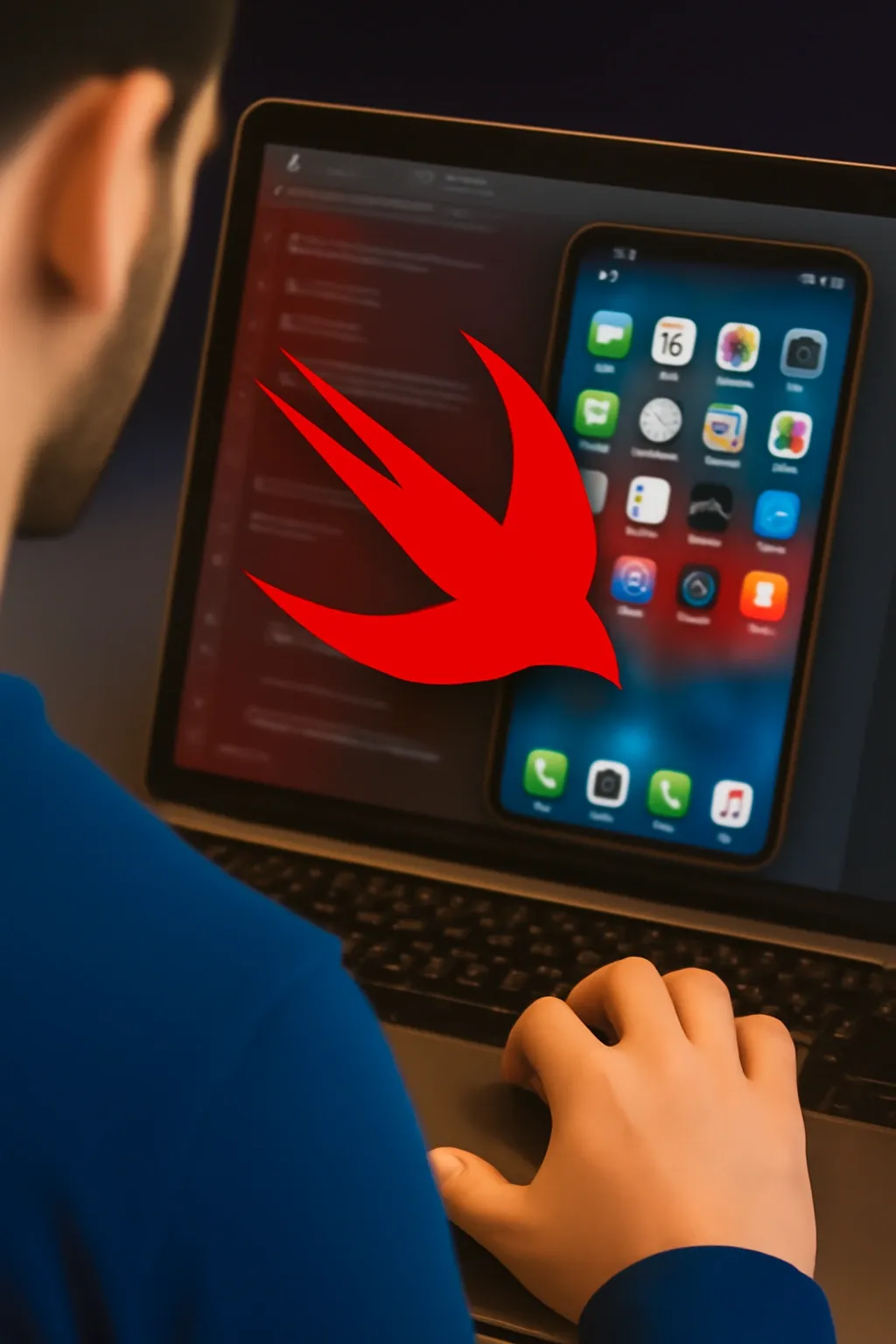
Tech Stack Expertise of Our iPhone App Developers
Our iPhone developers leverage the latest tools, libraries, and frameworks to deliver stunning, responsive iOS applications.
 iOS
iOS Swift
Swift
 SQLite
SQLite
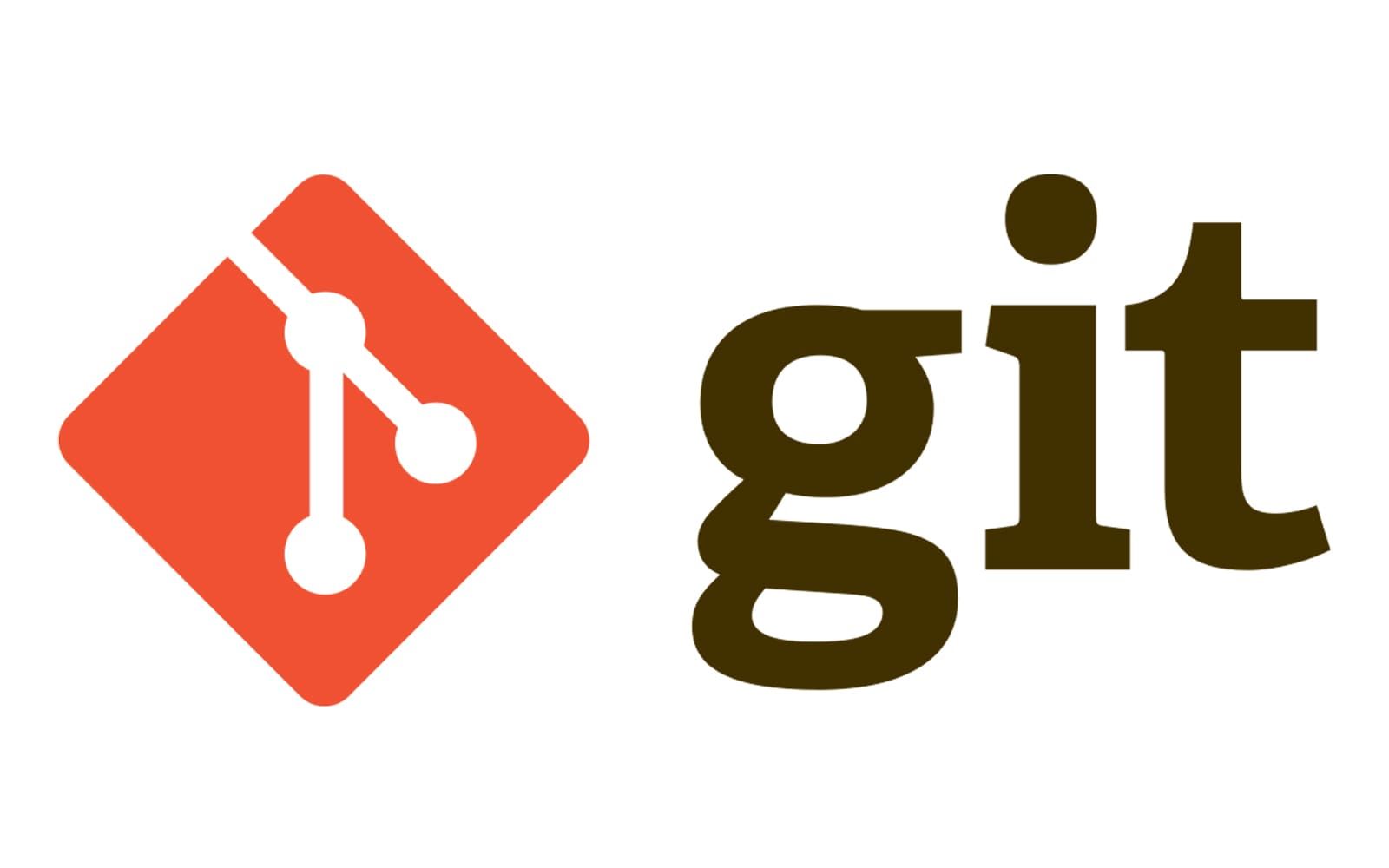 Git
Git
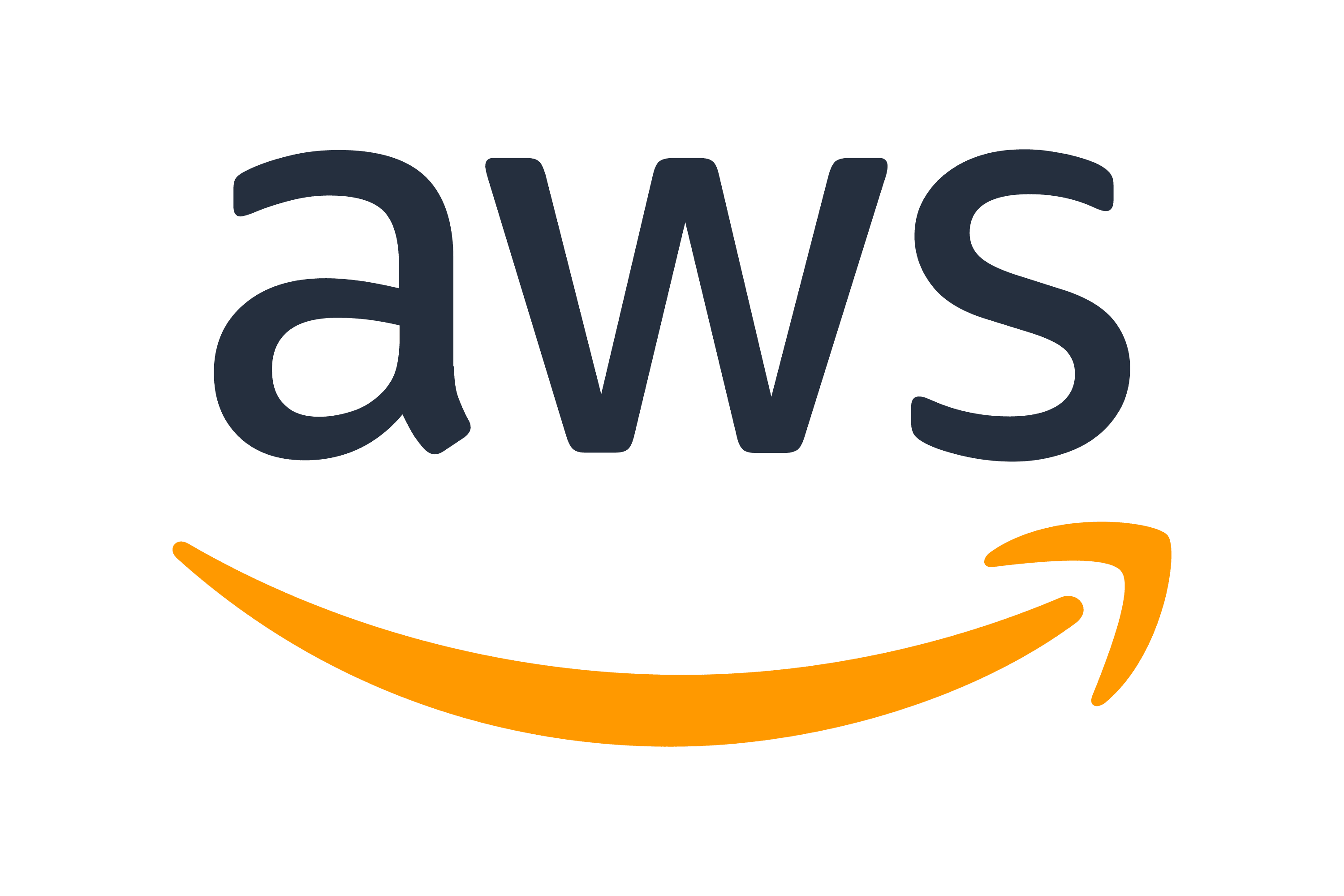 AWS
AWS
Testimonials
The team delivered high-quality work that met our expectations in terms of design and functionality.
Productivity-focused companies trust Dappinity’s high-quality iPhone App Developers to build fast, scale smart, and deliver with confidence.
We help you access skilled, reliable iPhone App Developers who bring clarity, speed, and scalability to your projects — so you can focus on results, not resourcing.
Why Hire iPhone App Developers from Dappinity?
Dappinity provides expert iPhone App Developers offering scalable, innovative, and client-focused solutions while ensuring high quality and timely project delivery.
- Expert Developers
- Agile Project Management
- Cost Effective Solutions
- Superior Software Quality
- Optimized Operational Costs
- Time Zone Compatibility
Benefits of Dedicated iPhone App Developers
The dedicated iPhone App Developers team at Dappinity delivers innovative, scalable, and secure solutions, ensuring seamless collaboration and future ready applications.
- Tailored Software Solutions
- Cutting Edge Technology
- Agile Development Process
- Seamless Collaboration
- Future Ready Applications
- End to End Support
Hire iPhone App Developers Fast with Our Simple Process

Tell us what you need - tech stack, experience, timelines.

We send you pre-screened developers matched to your needs.

You interview. You decide. Start in as little as 72 hours.

Easily scale up or down. We stay flexible as you grow.
1Engagement Models (Full-time, Part-time, Hourly, Project-Based)
When hiring iPhone app developers, selecting the right engagement model is critical for achieving your project’s goals while managing costs effectively. Here's an overview of the different engagement models for iPhone app development:
Full-time Developers:
Full-time iPhone app developers are ideal for long-term, complex projects that require ongoing development, such as building feature-rich applications or creating large-scale enterprise apps. This engagement model ensures that developers are fully dedicated to your project, allowing them to consistently work on app improvements, updates, and bug fixes.
Part-time Developers:
Part-time developers are a cost-effective solution for projects that don’t require full-time dedication. This model works well for maintaining an existing iPhone app, adding small features, resolving bugs, or providing periodic updates. If your project is in a maintenance phase or requires periodic attention, a part-time developer may be sufficient.
Hourly Developers:
Hourly developers offer great flexibility for specific tasks such as adding a new feature, fixing bugs, or optimizing an app. This model is perfect for short-term projects or small tasks where you only need assistance for a limited period.
Project-Based Developers:
Project-based developers are perfect for projects with clearly defined goals, such as building a new iPhone app, implementing specific features, or integrating third-party services. This engagement model is ideal when you have a set timeline and defined deliverables, with a clear scope and budget.
2Development Methodologies: Best for iPhone App Projects
Choosing the right development methodology ensures your iPhone app project progresses smoothly and delivers quality results on time. Below are the best methodologies for iPhone app development:
Agile:
Agile is the most suitable methodology for iPhone app development, especially when the app’s requirements are likely to change during the development process. Agile allows developers to work in iterative cycles, making it easier to introduce new features, refine existing ones, and adapt to user feedback quickly. It's perfect for creating dynamic, user-driven mobile apps.
Scrum:
Scrum is an Agile framework that divides the development process into sprints, typically lasting 1–2 weeks, with specific deliverables achieved at the end of each sprint. This methodology is ideal for large iPhone app projects, as it allows developers to focus on different app features, fix bugs, and conduct regular reviews. Scrum helps in breaking down complex projects into manageable chunks, ensuring steady progress.
Waterfall:
Waterfall is a traditional development methodology that works best for projects with stable, well-defined requirements. It’s most effective for smaller, simpler iPhone apps where the scope is unlikely to change. While not as flexible as Agile, Waterfall ensures a structured development process with a clear, step-by-step progression.
3Matching Tech Stack Needs with iPhone App Development
To ensure your iPhone app is built efficiently and effectively, understanding how the right tech stack aligns with your project is crucial. Here’s an overview of how iPhone app development fits within modern tech ecosystems:
Core Technologies:
- Programming Languages: iPhone app development primarily uses Swift for creating modern, high-performance apps. Objective-C is also used for older apps or maintaining legacy codebases. Swift is preferred for its ease of use, speed, and integration with Apple’s ecosystem.
- Frameworks: UIKit and SwiftUI are the key frameworks for building user interfaces on iOS. UIKit is traditional and highly customizable, while SwiftUI is the newer declarative framework for building apps with less code and more focus on design.
- Databases & Storage: iPhone apps often use CoreData, Apple’s native solution for data management, or Realm for a more cross-platform approach. Cloud-based storage solutions like Firebase or CloudKit are used for syncing and storing data online.
Backend Integration:
- API Integration: iPhone app developers are experienced in integrating APIs to ensure seamless communication between the app and the backend server. RESTful APIs and GraphQL are commonly used to fetch and send data from the app to the server.
- Authentication & Security: OAuth, JWT, and Apple's authentication services ensure secure login mechanisms and data protection in iPhone apps. Apple’s built-in Touch ID and Face ID support biometric authentication, providing added security.
- Push Notifications: iPhone app developers use Apple Push Notification Service (APNS) to send real-time notifications to users, keeping them engaged with updates, news, or promotional offers.
Testing & Quality Assurance:
- Unit Testing: iPhone developers use XCTest for writing unit tests to verify individual components or features of the app. Unit tests help identify issues early and ensure individual components work as expected.
- UI Testing: Tools like XCUITest allow iPhone app developers to simulate real user interactions and test the app’s UI for responsiveness and consistency across different devices.
- Beta Testing: Platforms like TestFlight allow developers to distribute beta versions of apps to testers, enabling valuable user feedback before the official release.
4Ensuring Code Quality for iPhone App Projects
High-quality code is essential for maintaining an iPhone app that performs well, scales easily, and remains bug-free. Here’s how developers ensure the quality of iPhone app code:
Code Reviews:
Code reviews ensure that best practices are followed, including efficient memory management, proper UI design patterns, and adherence to Apple's coding guidelines. Regular code reviews improve code quality by catching errors and ensuring code readability.
Automated Testing:
Automated testing frameworks like XCTest and Quick/Nimble are used to test individual app features and verify their functionality. Automated tests help prevent regression, ensuring that changes to the code don’t introduce new bugs.
CI/CD Pipelines:
Continuous Integration (CI) and Continuous Deployment (CD) are crucial for automating the build, testing, and deployment process. Tools like Jenkins, Bitrise, and GitHub Actions help in automating these processes, ensuring consistent quality and faster release cycles.
Linting & Formatting:
Using tools like SwiftLint ensures that the app’s code follows a consistent style, improving readability and maintainability. Linting helps detect errors early in the development process.
5Security & IP Protection for iPhone App Developers
Security is a priority when working with iPhone app developers, especially for handling sensitive data and intellectual property (IP). Here’s how you can ensure your app’s security and protect your IP:
NDAs & Legal Agreements:
It’s important to have developers sign Non-Disclosure Agreements (NDAs) to protect the confidentiality of your app and sensitive information. Contracts should clearly state ownership rights over the code, designs, and any other IP.
Source Code Management:
iPhone app developers use platforms like GitHub, GitLab, and Bitbucket for version control. It’s recommended to keep repositories private and enable two-factor authentication (2FA) for added security.
Access Control:
Role-based access control (RBAC) limits who can access and modify critical portions of the app’s code. Developers should only have access to the parts of the project that they need to work on.
IP Ownership:
Make sure that contracts explicitly state that all intellectual property, including the code, designs, and other assets, belong to your business. “Work for Hire” clauses ensure that you retain full ownership of the app.
6Freelancer vs Dedicated iPhone Developer: What’s Better for Your Project?
Choosing between a freelancer and a dedicated iPhone developer depends on the complexity and scale of your project. Here’s a comparison of both options:
Freelancers:
Freelancers are great for smaller, short-term projects, such as adding a new feature, creating a prototype, or fixing bugs. They offer flexibility and lower costs, making them a good choice for well-defined tasks that don't require ongoing commitment.
Dedicated iPhone Developers:
For larger, more complex projects, a dedicated iPhone developer is the better choice. They can work on building a full-featured iPhone app, handling ongoing maintenance, and providing consistent support. A dedicated developer ensures long-term collaboration, deeper engagement, and better scalability.
Engage Dappinity for Your iPhone App Development
Partner with Dappinity to transform your iOS app idea into a fully functional, beautifully designed reality. Our developers focus on secure code, optimal performance, and an immersive user experience customized for the Apple ecosystem.
600+
Project completed12+
Years Experience100%
Positive reviews92%
Customer RetentionTransparency
Strict Privacy Assurance with NDA
Talented Team of Developers
12 Months Free Support
Smooth Collaboration & Reporting
On time Delivery, No Surprises
Efficient & Adaptive Workflow
FAQs About Hiring iPhone App Developers
We provide experienced iOS developers who blend technical expertise with design sensibility, ensuring secure and visually compelling apps across Apple devices.
We work on various kinds of iPhone Apps from utility apps and games to complex enterprise solutions, ecommerce, and healthcare apps.
Developers can be onboarded within 24–48 hours based on your project requirements.
Yes, we can integrate your iOS apps with robust backends using technologies like Node.js, Firebase, Django, and more.
Absolutely. We handle TestFlight testing, App Store deployment, analytics integration, and app updates.
Yes. We provide maintenance and upgrade support to ensure your app stays updated and efficient.
Yes. All code and intellectual property rights belong entirely to you.








